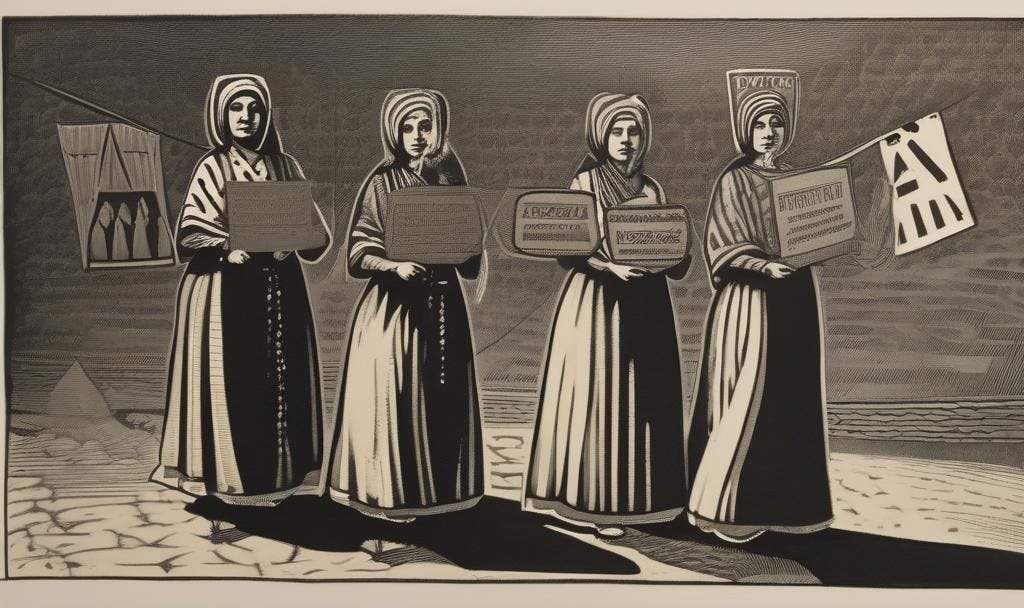From Naama to the Bnot Tzelafchad: The Valuation of Women in the Torah
A silent revolution right in front of our eyes

Every year, reading through Bereishit brings up all sorts of issues. This year, though, my son had a bar mitzvah and one of his gifts was a safer called “Rashi KiPshuto”, which interjects modern Hebrew into Rashi’s commentary to make it more readable and give it more context. I was using it the other day to read the first part of this week’s parsha, Torah portion, and I was struck by one of the comments of Rashi, which will be mentioned below. The comment though did get me thinking about how women are valued throughout the Torah and that perhaps there was a larger message that the Torah was trying to send. Allow me to explain:
Based on a very interesting shiur I heard last week, it is very likely that Noah’s wife was raped by her son at the end of Parshat Noach. In essence, the fact that she is his mother is irrelevant to Ham’s need to exert his dominion in the post-flood world. As evidenced by Ham’s disregard for the fact that he was raping his mother, it is clear that at this stage in the Torah that women are considered Hefker, or essentially ownerless.
In Parshat Lech Lecha, according to Rashi (12:14), Avram feels the need to hide his beautiful wife, Sarai (their names had not yet been changed), in a chest, as if she were property. Rashi basically describes that they only found Sarai because they were inspecting his property for taxation purposes. Being property is one level better than being ownerless since at the very least it means they are in the care and control (in the sense that someone will defend their rights to this woman) of someone else.
The next relationship we see is that between Isaac and Rebecca. Here a barter takes place between Eliezer and Rivka/Lavan. I would like to think that bartering is slightly better than a pure “property/cash” transaction since it shows there is intrinsic value on both sides. Cash transactions work because they allow everything to be priced accurately and not based on one’s attachment to the item or desire to sell it. A barter means the value I see in your item(s) is equal to the (intangible) value I see in my item.
As relationships progress through Bereishit, we next see that Yaakov needs to work to “earn” Rachel and Leah. The bar is raised at this point. One can no longer come with cash in hand and expect a woman/wife in return. They must themselves be worthy of what they are trying to acquire.
[I may add something here about Yehuda and Tamar, since property is a critical aspect of this story, I’m just not sure how it works into the whole framework I am presenting here, though it may help us get to the next step regarding Moshe]
In Exodus/Shemot, the tables are turned slightly when it is now Tzipporah who must “court” Moshe into her life. I don’t think we can say that she is “owning” Moshe, but it is definitely the most (aside from Tamar) we have seen a woman be involved in her relationship in the Torah to this point.
This progression can bring us all the way to Bnot Tzelafchad (Numbers 27:1-11). The central point here is that now, in certain cases, women can own property, which is something that can’t be done by other property (rich dogs excluded). In order to achieve this, their status is raised progressively over time. Perhaps more interestingly, the Torah itself does (most of) the progression, not the women, as if one of the goals of the Torah was to achieve this elevation in the status of women in the eyes of society. Bnot Tzelafchad complete the “redemption” of women from being ownerless to being the property owners themselves.



